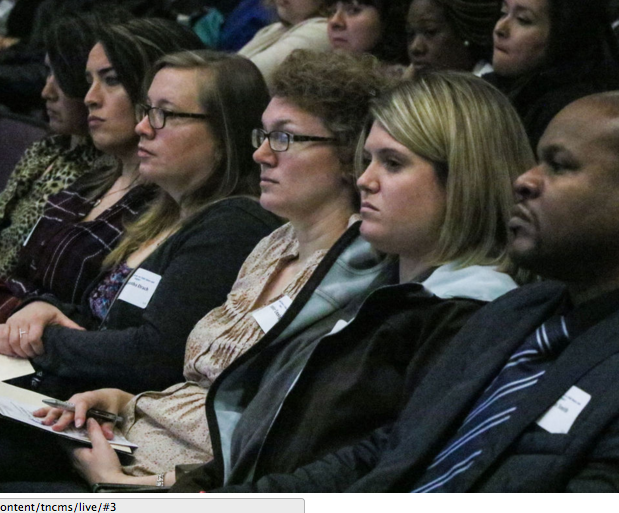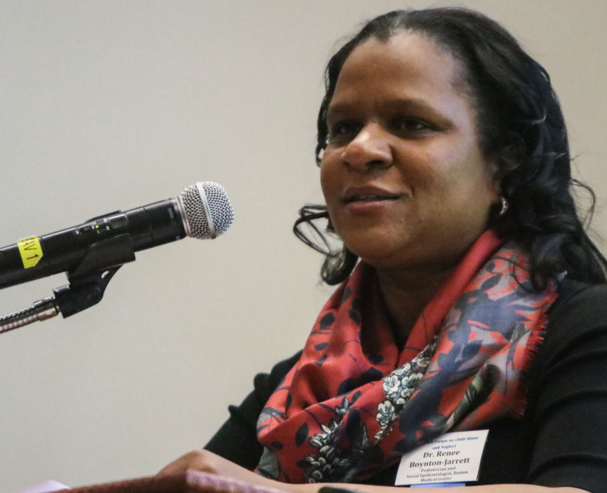 GARY — During the recent lead-tainted water crisis in Flint, Michigan, there was at least testing available to determine which children had been contaminated.
GARY — During the recent lead-tainted water crisis in Flint, Michigan, there was at least testing available to determine which children had been contaminated.
There is no such blood test to measure exposure to early childhood trauma, which increases the risk for cardiovascular disease, mental health problems and learning difficulties later in life.
So the medical community, schools and social services must collaborate to prevent kids from experiencing so-called toxic stress, a Boston pediatrician told a group of social workers and family counselors Friday at Indiana University Northwest.
“No one organization can handle this task on their own. That’s why it often isn’t addressed,” Dr. Renee Boynton-Jarrett, a pediatrics professor and social epidemiologist at Boston Medical Center, said in her keynote speech Friday at the IUN Forum on Child Abuse and Neglect.
The theme of the 26th annual conference was “Raising Northwest Indiana,” which was inspired by a PBS documentary series, “The Raising of America,” which focused on the importance of early childhood well-being and featured Boynton-Jarrett’s work.
Five years ago, she founded a group in Boston called Vital Village Network, which brings together medical professionals, educators, social service providers and legal advocates to better recognize and treat childhood trauma.
 One of its initiatives has been to provide local elementary schools with tool kits for kids affected by trauma that include things like stress balls, calming scents and noise-canceling headphones.
One of its initiatives has been to provide local elementary schools with tool kits for kids affected by trauma that include things like stress balls, calming scents and noise-canceling headphones.Early stress is directly related to poor health outcomes later in life, Boyton-Jarrett said. She displayed a map of Boston that showed the areas with the most violent crime also had the highest rates of childhood obesity and hypertension. Toxic stress also can impede brain development, the majority of which occurs before age 5, she said.
She quoted the late stress researcher Hans Seyle, who said: “It’s not stress that kills us but our reaction it.” Traumatic events generate a fight-or-flight response, releasing hormones that increase blood pressure and heart rate. Too much trauma early on can cause a person’s body to later overreact to normal, everyday stressors.
